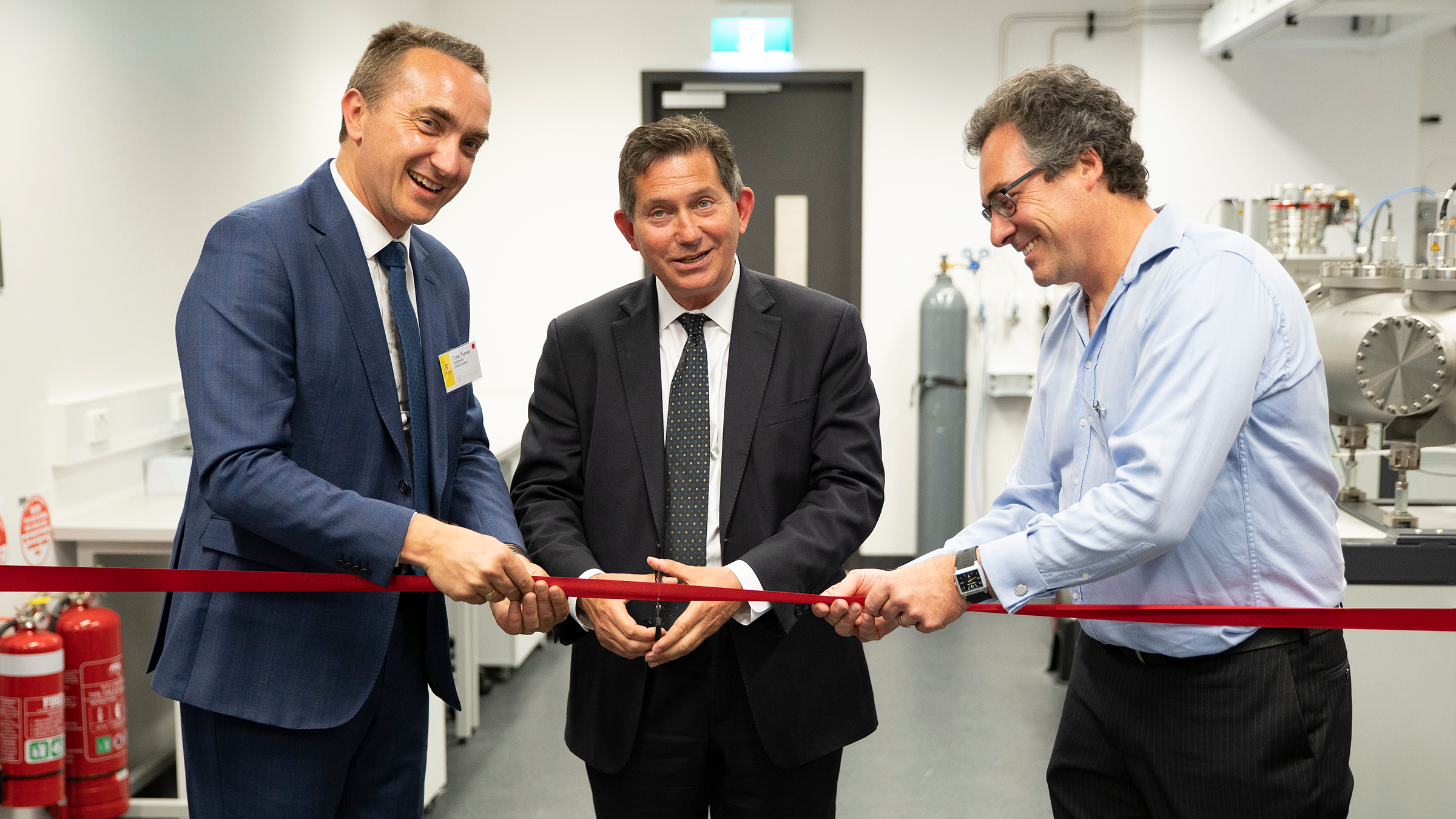
The new Chronos 14 Carbon-Cycle Facility will allow UNSW researchers to investigate the Southern Hemisphere climate of the last 50,000 years and potentially predict the future effects of climate change.
Launched this week, the $8M purpose-built lab will support UNSW researchers in their efforts to spearhead a revolution in understanding the planet’s climate-carbon system.
Carbon-14 is an unstable isotope of carbon formed in tiny amounts in the atmosphere that eventually gets absorbed by living organisms. The amount of carbon-14 remaining in a sample, for example a piece of preserved wood, allows researchers to determine the age of an object.
The new facility, located in the Mark Wainwright Analytical Centre, is one of the first in the world to take advantage of recent developments in carbon-14 dating that allow researchers to reconstruct Southern Hemisphere climate records with incredibly targeted accuracy. The process, previously limited to records looking back 150 years into the past, now allows researchers to investigate as far back as 50,000 years, pinpointing specific years to each tree ring and the climate affecting the tree at the time. It is also much faster, taking thousands of radiocarbon measurements a year.
UNSW President and Vice-Chancellor Professor Ian Jacobs said the facility is an exciting and important addition to UNSW and further enhances our credentials as a leader in climate sciences.
“This facility will be the source of profound new discoveries in the Earth, Environmental and Archaeological Sciences,” Professor Jacobs said.
“If ever we needed this type of insight into our environment, it is now, as we face the existential threat of a climate emergency.”
Helping us understand changes in climate
ARC Laureate Fellow and Professor of Earth Science and Climate Change, Professor Chris Turney, believes the scope of the new facility provides enormous opportunities for carbon dating research to help us understand changes in our climate today, particularly in Australia and Asia.
“The insights afforded by this new facility will provide an improved understanding of the global drivers and impacts of future climate, whilst also allowing us to investigate the adverse impact of past cosmological and global events on life on earth, and greatly increase our knowledge of prehistoric human populations across Australia and Asia,” Professor Turney said.
Looking back as far as 50,000 years
The facility also has exclusive access to ancient sub-fossil and remote subantarctic trees, Antarctic ice and other materials spanning the last 50,000 years. It is one of the only radiocarbon dating laboratories in the world that has access to the sample material inside the lab itself.
The laboratory represents a significant investment into research outcomes, a key priority of the 2025 Strategy. Its location in the cross-disciplinary Science and Engineering Building at UNSW means students can come and use this facility along with researchers from different faculties and research areas.
The construction of the laboratory was managed by Estate Management who collaborated with architects to deliver the brand new world-class dedicated space. The facility, designed to house this specific research, is temperature controlled and dust-free with dedicated space for each stage of the research process.
Executive Director (Acting) of Estate Management, Sancha Cromie, said: “Estate Management have delivered this dedicated world-class facility, enabling further research across seven Australian institutions in the area of chronology, climate and carbon; truly important research, to which we are humbled to have contributed.”
Beyond the University, researchers from the new Chronos 14 Carbon-Cycle Facility are collaborating with the Australian Nuclear Science and Technology Organisation (ANSTO) to train a new generation of interdisciplinary researchers needed to meet the environmental challenges of the future.
- Log in to post comments
